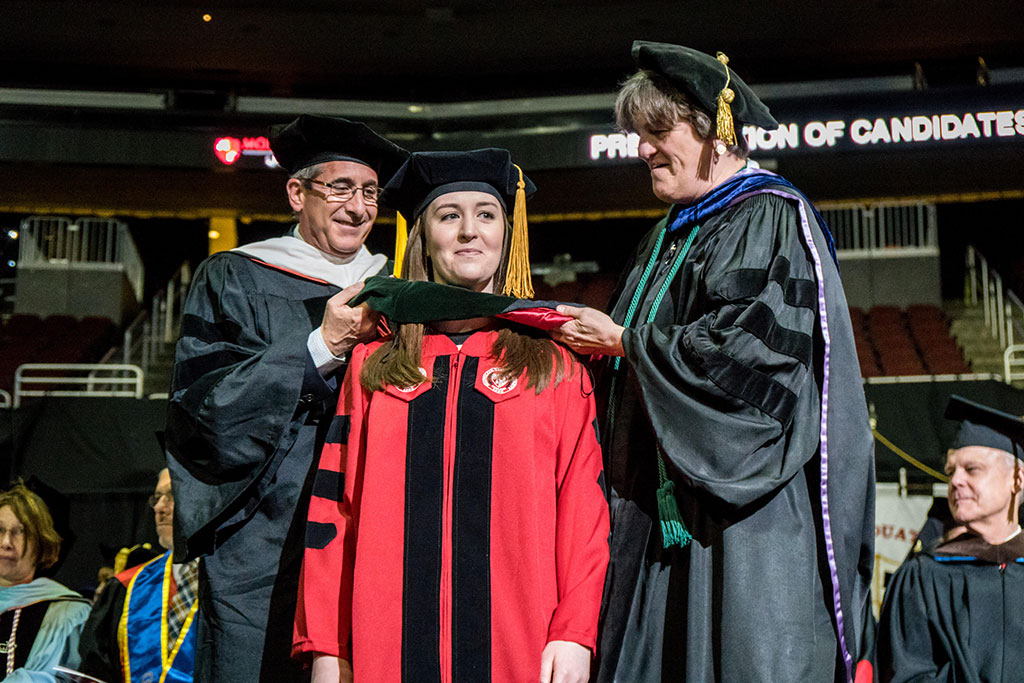Celebrating 20 Years of Graduate Studies

Since opening its doors 20 years ago, The Graduate School at Montclair State has made a substantial commitment to expanding its master’s and doctoral degree programs, milestones that contributed to the University’s recent designation as a research doctoral university.
Celebrating two decades of work that transformed the program to meet the educational goals of qualified students and the needs of New Jersey, The Graduate School’s 20th Anniversary event on Nov. 9 gave Dean Joan Ficke the opportunity to highlight the “invaluable contributions of our faculty to the career and educational aspirations of our students.”
The University offers nearly 100 graduate programs as well as post-baccalaureate certificates and certifications, with many geared toward future teachers. U.S. News & World Report recently included the School’s graduate education programs among the nation’s top 100 in its 2017 Best Education Schools list, and also placed the school’s graduate programs in elementary and secondary teacher education among the top 15 in the country.
Nearly 4,200 students are enrolled in master’s or doctoral programs with the majority attending part time, but about 35 percent of students now attend full time, thanks to state-of-the-art laboratories, equipment and other resources that enable faculty and students to pursue research.
Environmental Management, the first doctorate offered in 1998, paved the way to expand the doctoral program. Today, more than 270 students are pursuing doctoral degrees in Audiology; Communication Sciences and Disorders; Counseling; Environmental Management; Family Studies; Mathematics Education; Clinical Psychology; and Teacher Education and Teacher Development. Notably, the National Science Foundation Doctoral Research assistantship supports full-time doctoral studies in Mathematics Education.
The offerings over the past two decades have been strategically selected to help shape the future and “illustrate the wide-ranging research opportunities we provide for the next generation of scientists and professionals,” Ficke said.